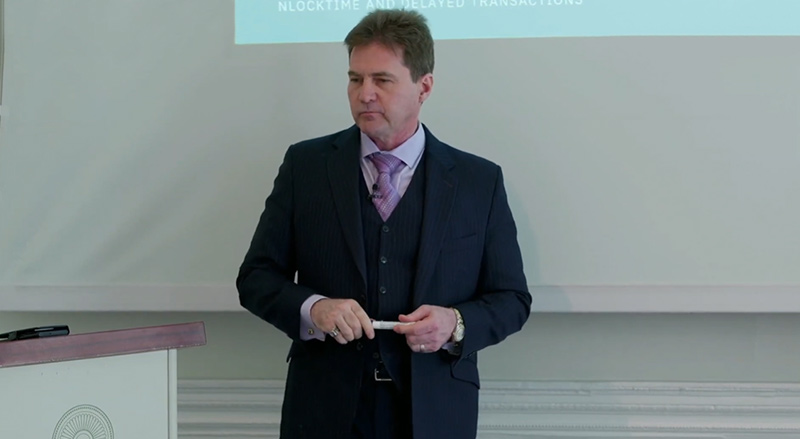The Bitcoin Masterclass (London) Day 1
Dr Craig S. Wright, Chief Scientist at nChain, held another edition of his Bitcoin Masterclass series at an exclusive venue in London in April. The Masterclass course forms part of a monthly series aimed at helping attendees understand the fundamentals of Bitcoin and the technology behind it.
The Bitcoin Masterclass series will give you a comprehensive overview of Bitcoin’s history, theory and design. Wright discussed the future of Bitcoin and the unbounded scalability of nChain’s blockchain solutions, with potential use cases across several industries.
In the second session on day one, Wright asked workshop attendees to think about how payment channels can be improved using nLockTime and time-locked contracts. He also held a wider discussion on the difference between holding Bitcoin for speculation purposes and using it for its intended purpose as a payments system.
Why ‘going to the moon’ would be a bad thing
Wright noted that while many ‘investors’ buy and hold onto Bitcoin for speculation purposes, dramatic price increases diminish the practical utility of Bitcoin. If the value of a single satoshi unit reaches an exorbitant amount like $10,000, it becomes impractical for everyday transactions, like buying a simple cup of coffee.
The reason behind this reduced utility lies in the rampant price speculation that occurs with Bitcoin. Instead of being actively used in transactions, people tend to hold onto their Bitcoins, essentially locking them away as a store of value. In a hypothetical scenario where Bitcoin was to replace traditional cash, this behaviour could significantly reduce economic activity globally.
Moreover, Dr Wright notes that money held on the blockchain is also unproductive, such as in the case of locked future payments on the BTC network using CLTV (CheckLockTimeVerify). By comparison, the BSV protocol offers superior alternatives for handling such situations.
Integrating payment channels
While this idea of holding onto assets like Bitcoin is seen as ‘wealth’, Wright noted that actual wealth is money in circulation – which highlights the importance of proper payment channels.
He gave the example of a possible payment channel for a car, where ownership is divided into tokenised shares. Participants in the channel could include the seller and owner, as well as the financier, an insurance company, and a service mechanic.
Various conditionals would be written into the contract that determines payments and their amounts, which could change depending on events in the real world. The ultimate goal could be a buyer’s complete ownership of all shares, or it could be a leasing arrangement, but times and amounts can be adjusted along the way.
Using this example, Wright also discussed how one can use nLocktime to structure things without linking parties on-chain. This would allow the parties to set up a variety of financial states, each of which changes conditions and amounts and would include completed payments along the way, leading towards the final desired state. Payments can also be automated, meaning they don’t necessarily require individual approvals or signings.
